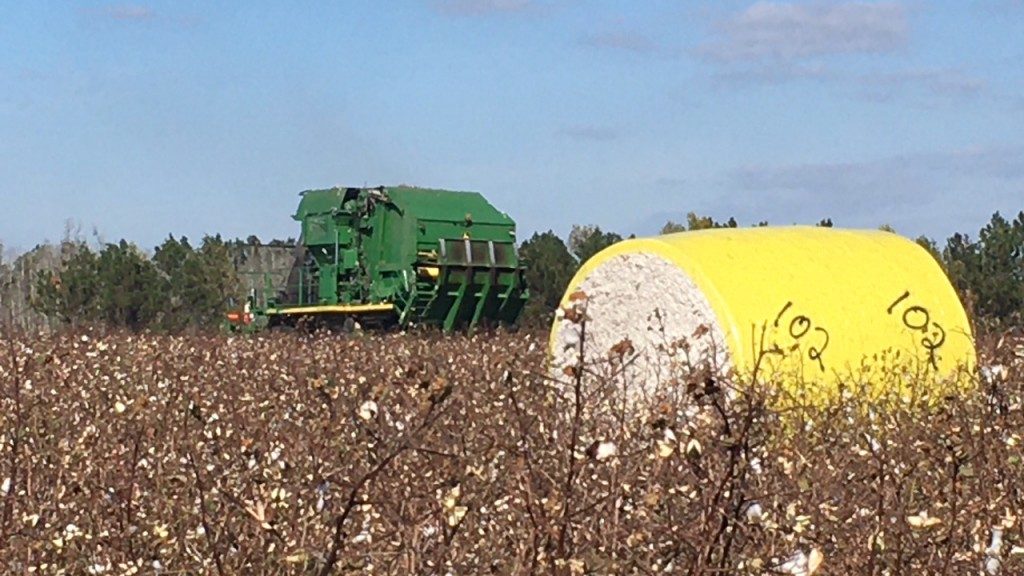Jeremy Kichler
-
Hello, Information about Using Pesticide Wisely Trainings have just been released and is discussed below. The announcement about the UPW trainings can be obtained Below. AUXIN TRAINING REQUIREMENTS – GEORGIA 2021 Engenia, FeXapan, Tavium, XtendiMax All applicators driving the tractor/sprayer applying these herbicides must attend Using Pesticides Wisely during 2021 prior to using these products! …
-
According to UGA production budgets, fungicides account for about 15% of the variable costs of irrigated peanut production. Fungicide selection in peanut production can influence the bottom line. A peanut fungicide demonstration was conducted with the help of the Sunbelt Ag Expo in the summer of 2020. Fungicide treatments were determined by using Peanut RX.…
Posted in: Peanuts -
Southern rootknot nematodes has been a challenge for Colquitt County cotton producers. According to Dr. Bob Kemerait, UGA Plant Pathologist, an estimated 60 to 70 percent of Georgia’s cotton fields are infested with at least one species of damaging nematodes. In a recent statewide survey of cotton fields (nearly 1800 samples were submitted by agents…
-
We had a great opportunity to conduct another on farm research trial at the Sunbelt Ag Expo in 2020. This research focused on the management of root knot nematodes in cotton. The plots were planted on May 14, 2020 and harvested on November 10, 2020. The treatments were replicated three times and each plot consisted…
-
The last few years I have had the great opportunity to work with Mr. Gene Hart, Colquitt County Young Farmer Advisor with various on farm research projects at the Packer Park Farm in Colquitt County. The research in 2020 focused on the management of root knot nematodes in cotton. This irrigated plot was planted on…
-
I often get a call or two every year about fertilizing home muscadines. They are ideal for backyard production because they need a minimum spray program. If you have just planted your vines then it is suggested to apply fertilizer three times during the first year. The first application will consist of a ½ pound…
-
Hay producers often ask questions about ryegrass control in hayfields this time of year. Annual ryegrass (Lolium multiflorum), also referred to as Italian ryegrass, is the most problematic winter annual weed in Georgia hayfields. Ryegrass seed can germinate from September to November when soil temperatures drop below 70 degrees F. Annual ryegrass grows well under…
-
I have been getting questions about aphid thresholds in oats and other small grains. Growers or scouts should inspect fields 25-35 days after planting, full tiller, and heading. Yield-reducing transmission of Barley Yellow Dwarf virus can occur during the first two periods; transmission at heading is too late to reduce yield. According to the 2020…
Posted in: Small Grains -
How producers manage their bulls can have a big impact on the profitability of their commercial cow-calf operations. The pre breeding season for a bull should start about 60 days before the breeding season starts. This is particularly important for yearling bulls. Let’s discuss some important points that could impact bull performance. These points are…
Posted in: Beef Cattle -
The last couple of years I have received questions about Areolate mildew and how to manage this disease in cotton. Areolate mildew, is caused by the fungal pathogen Ramularia areola. According to Dr. Bob Kemerait, UGA Plant Pathologist, this disease has become more widespread since 2017. The use of fungicides to protect against this disease…
Posted in: Cotton
